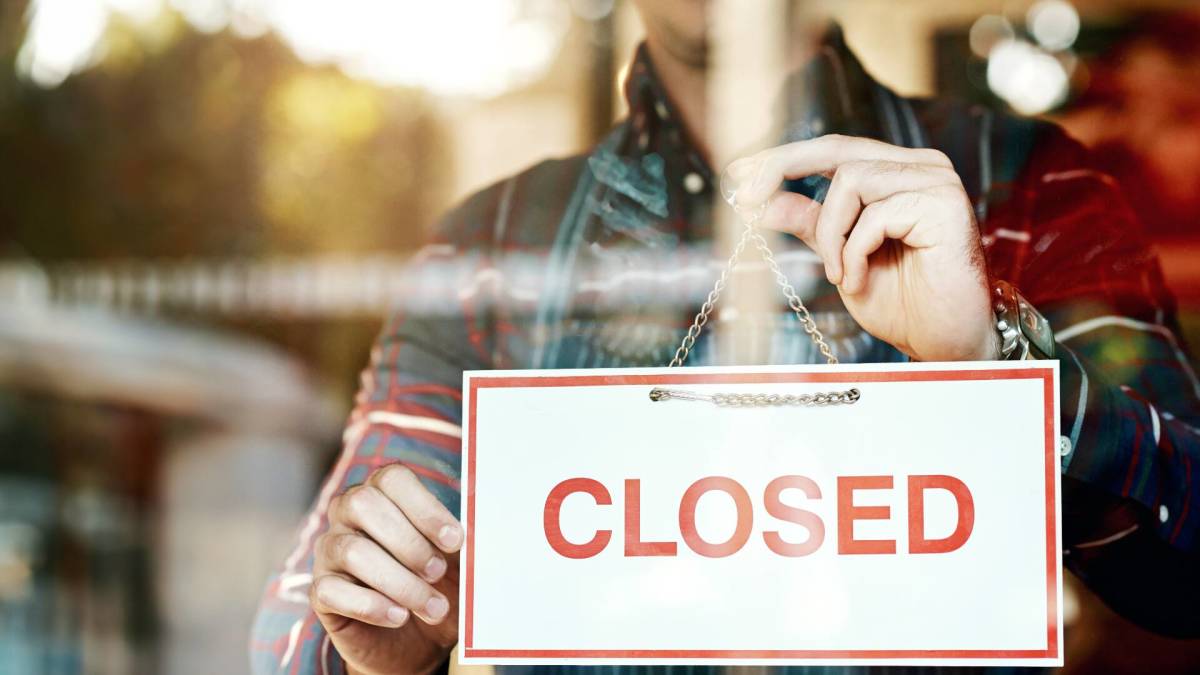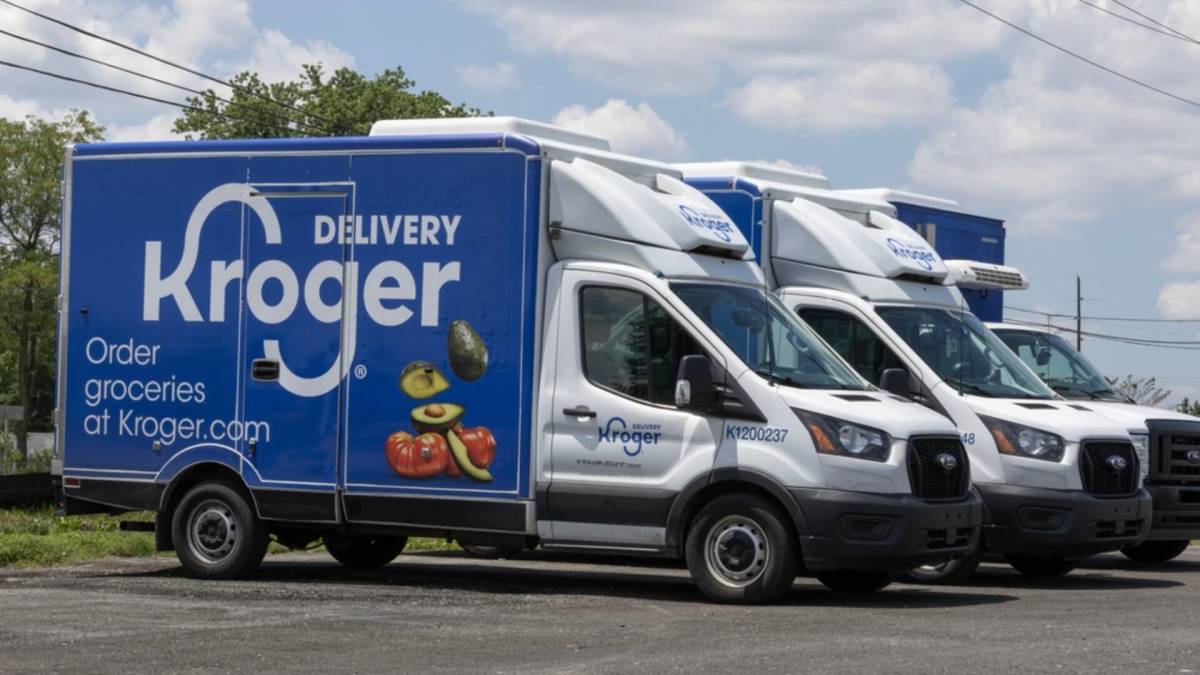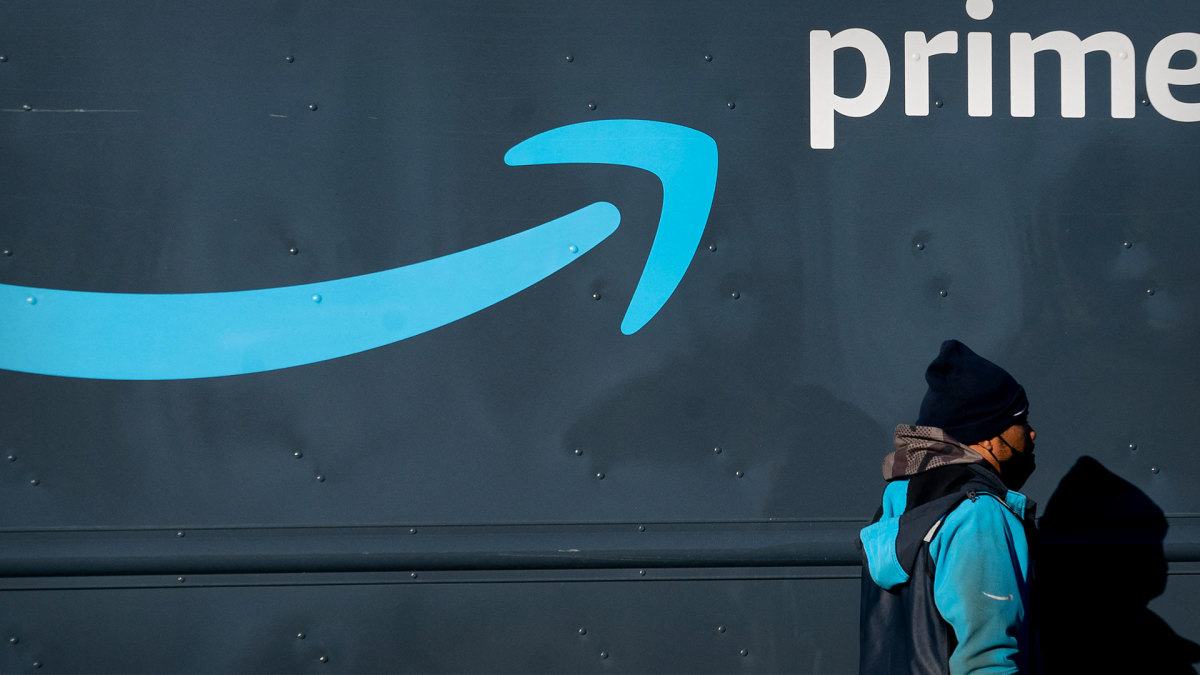Kroger announces unexpected closures ahead of holiday season
While Kroger has long been a trusted grocery destination for millions of consumers since its founding in 1883, the way people shop has undergone drastic changes since the pandemic. Many shoppers now prefer the convenience of placing orders online instead of visiting stores in person. That shift is ...

While Kroger has long been a trusted grocery destination for millions of consumers since its founding in 1883, the way people shop has undergone drastic changes since the pandemic. Many shoppers now prefer the convenience of placing orders online instead of visiting stores in person.
That shift is bringing significant changes to Kroger's business. Several of its markets are about to lose a key delivery service, and in one state, it will disappear entirely.
The rise in popularity of online shopping continues to reshape consumer habits and the retail industry. With the ability to fill a virtual cart and schedule a convenient pickup or delivery time, some shoppers see little need to step inside a store.
According to Capital One Shopping, U.S. online grocery sales increased 104% during the pandemic and are projected to grow 12.3% annually through 2029. In 2025, more than 148 million Americans, nearly 52% of the population, are expected to buy groceries online.
Kroger to close five fulfillment facilities
Kroger (KR) confirmed on its website that it will close five fulfillment facilities in Pleasant Prairie, Wisconsin; Frederick, Maryland; Groveland, Florida; Nashville, Tennessee; and Oklahoma City, Oklahoma, in January 2026, in an effort to streamline operations and improve delivery efficiency.
In Florida, the Groveland shutdown will be accompanied by the closure of three additional connected fulfillment centers in Rockledge, Tampa, and Jacksonville, according to WARN filings.
Kroger facility layoffs
- Pleasant Prairie Facility: 211 jobs
Source: DWD - Groveland Facility: 935 jobs
Source: Florida Commerce Rockledge Facility: 53 jobs Tampa Facility: 234 jobs Jacksonville Facility: 181 jobs - Frederick Facility: No information as of November 21
Source: Maryland Department of Labor - Nashville Facility: No information as of November 21
Source: TN - Oklahoma City Facility: No information as of November 21
Source: The Oklahoman

Shutterstock
Why Kroger is closing fulfillment centers
Kroger expects the restructuring to contribute to a $400 million increase in e-commerce operating profit by 2026, which will allow it to reinvest in lower prices, improved store conditions, and stronger margins.
However, the company anticipates about $2.6 billion in impairment charges in the third fiscal quarter of 2025 due to the closures and the underperformance of its automated fulfillment network. Despite this financial hit, Kroger says comparable sales should remain neutral to any impact.
More Closures:
- 100-year-old grocery chain’s stores acquired by rival after closures
- 98-year-old beer store chain has closed nearly 100 locations so far
- 61-year-old fast-food chain quietly closes dozens of locations nationwide
"We are building on a strong foundation with five consecutive quarters of double-digit eCommerce sales growth and increased profitability improvements," said Kroger CEO Ron Sargent in the news release. "We are taking decisive action to make shopping easier, offer faster delivery times, provide more options to our customers, and we expect to deliver profitable sales growth."
What the Kroger facility closures mean for customers
Kroger operates 1,238 grocery stores across 16 states, but hasn't had physical locations in Florida since the late 1980s. To fill this gap, the company provided its delivery service in the state through its Florida-based fulfillment centers.
With these Florida facilities closing, the state will lose access to Kroger's entire grocery delivery program. Customers in Oklahoma City, Oklahoma; Nashville, Tennessee; Chicago, Illinois; and Pleasant Prairie, Wisconsin will only lose local access in those markets.
According to Fox35 Orlando, Florida customers were notified via email that final orders must be placed by January 31, with delivery ending on February 1. Kroger's website states that starting January 7, all remaining delivery options will come directly from its stores instead of automated centers.
More Kroger cuts ahead
Fulfillment centers aren't the only part of Kroger's business being cut. In its first-quarter earnings report for fiscal 2025, the company revealed plans to shutter 60 underperforming stores by the end of 2026.
Kroger has also made several rounds of layoffs this year, with the recent fulfillment center closures marking at least the fourth round of job cuts in 2025.
Kroger's recent layoffs
- February: Eliminated 200 positions across three Cincinnati office sites
Source: Cincinnati Business Courier - March: Laid off employees at 84.51°, Kroger's retail data science and analytics subsidiary
Source: The Cincinnati Enquirer - August: Cut around 1,000 corporate jobs, primarily impacting its Technology and Digital division
Source: The Street
Grocery delivery evolves
To better adapt to evolving consumer habits, Kroger is relying on its third-party partners to deliver groceries across more markets and fuel its retail media business.
The company expanded its partnership with Instacart, which will become its primary delivery fulfillment provider, and Kroger will be among the first retailers to integrate Instacart's AI tool, Cart Assistant, into its app. The retailer has also broadened its relationship with DoorDash and Uber Eats.
"Our differentiated approach, combining the proximity of our stores with high-capacity automation, the wide assortment of the fresh food they love, allows us to fulfill more trips for the families we serve," said Kroger Executive VP and Chief Digital Officer Yael Cosset.
Kroger will continue to use automated customer fulfillment where demand is high and will pilot store-based fulfillment in high-volume markets to improve its fulfillment capabilities and enhance the in-store experience.
In the second quarter of fiscal 2025, total sales increased 0.08%, with same-store sales up 3.4%. This growth was partly driven by a 16% rise in e-commerce sales.
"Shifts in consumer preferences present an opportune moment for both shippers and providers to reassess their approaches," said McKinsey & Company.
"Decisions regarding cost, speed, reliability, transparency, flexibility, and sustainability can all be reevaluated. Getting value propositions right will rely on understanding the priorities of specific customers, as there is no one-size-fits-all solution."
Retailers that have shifted their fulfillment capabilities
- Target (TGT): Opened six new large-format stores to serve as both shopping destinations and fulfillment hubs for online orders
- Walmart (WMT): Began testing "dark stores" to speed up order processing
- Macy's (M): Opened a 1.4 million-square-foot automated warehouse in China Grove, North Carolina, to meet the growing demands of its omnichannel business
- Amazon (AMZN): Began rolling out a doorstep pickup service in collaboration with USPS for select customer returns
Related: Shein takes on key Amazon product line
What's Your Reaction?




















































